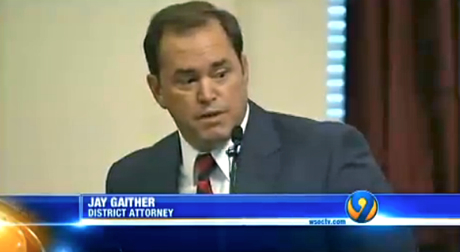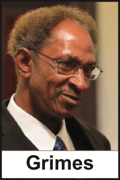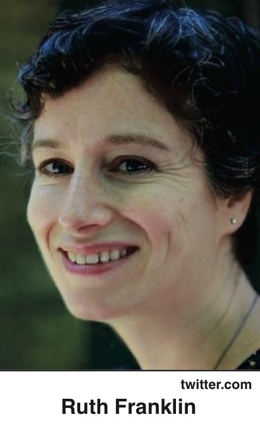Rascals case in brief
In the beginning, in 1989, more than 90 children at the Little Rascals Day Care Center in Edenton, North Carolina, accused a total of 20 adults with 429 instances of sexual abuse over a three-year period. It may have all begun with one parent’s complaint about punishment given her child.
Among the alleged perpetrators: the sheriff and mayor. But prosecutors would charge only Robin Byrum, Darlene Harris, Elizabeth “Betsy” Kelly, Robert “Bob” Kelly, Willard Scott Privott, Shelley Stone and Dawn Wilson – the Edenton 7.
Along with sodomy and beatings, allegations included a baby killed with a handgun, a child being hung upside down from a tree and being set on fire and countless other fantastic incidents involving spaceships, hot air balloons, pirate ships and trained sharks.
By the time prosecutors dropped the last charges in 1997, Little Rascals had become North Carolina’s longest and most costly criminal trial. Prosecutors kept defendants jailed in hopes at least one would turn against their supposed co-conspirators. Remarkably, none did. Another shameful record: Five defendants had to wait longer to face their accusers in court than anyone else in North Carolina history.
Between 1991 and 1997, Ofra Bikel produced three extraordinary episodes on the Little Rascals case for the PBS series “Frontline.” Although “Innocence Lost” did not deter prosecutors, it exposed their tactics and fostered nationwide skepticism and dismay.
With each passing year, the absurdity of the Little Rascals charges has become more obvious. But no admission of error has ever come from prosecutors, police, interviewers or parents. This site is devoted to the issues raised by this case.
On Facebook
Click for earlier Facebook posts archived on this site
Click to go to
Today’s random selection from the Little Rascals Day Care archives….
Click for earlier Facebook posts archived on this site
Click to go to
Today’s random selection from the Little Rascals Day Care archives….
Parent said God knew better than ‘Frontline’
April 17, 2013
“One day you will stand before almighty God and be accountable for that which you have done here on Earth, and no amount of lies and manipulation, no ‘Frontline’ presentation will be able to hide the truth from him. He knows every sordid detail and I pity you for that.”
– From a statement read by Little Rascals parent Susan Small at the plea-agreement hearing of Scott Privott (June 16, 1994)
On the scale of responsibility for brutalizing the Edenton Seven, the panicked, misinformed parents may rank as least culpable. They were neither demagoguing public servants (the prosecutors) nor overreaching professionals (the therapists). Even so, Susan Small’s tirade seemed gratuitously vitriolic – as if her own beliefs might have needed reinforcing?
I asked Scott Privott what it felt like being on the receiving end that day in the courtroom.
“I almost got up and told her to shut the hell up and that I would let the state put me on trial,” he said. “I thought to myself that I was glad God would judge me and not her and her pathetic cohorts.”
Scott’s recollection of his earlier knowledge of Susan Small highlights the Lilliputian stage on which the sprawling Little Rascals drama played out:
“I was in college with Susan Small’s husband, Morris; in fact, Morris and I used to ride together from Edenton to Elizabeth City to attend classes at the College of the Albemarle. Susan was at the college too, but I didn’t know her that well. Morris was my banker at the time of my arrest.”
A third member of the car pool: Jay Swicegood, another accusing parent.
“I am not like some of those who’ve been falsely accused and hold no ill feelings,” Scott says. “I have plenty of ill feelings, and I do not for one moment wish them any good tidings.”
Idle thought: Might it mitigate Scott’s bitterness if someone – anyone! – who participated in putting him behind bars for three years and eight months had the courage to apologize?
‘You don’t just brush off 24 years of a man’s life’
 Oct. 12, 2012
Oct. 12, 2012
The exoneration of Willie Grimes warms my heart, and not just because the 66-year-old parolee has become “Free at last!” after a 1987 rape conviction in Hickory.
As often lamented on this site, prosecutors such as those in the Little Rascals case simply refuse to acknowledge, much less take responsibility for their mistakes.
In the Grimes case, however, District Attorney Jay Gaither told the Innocence Inquiry Commission panel, “The State cannot argue any conclusion other than for innocence in the case of Willie Grimes,” then rested the state’s case and sat down.
Afterward, he explained that “In this week’s presentation of evidence we counted no less than 35 pieces of evidence and testimony in support of innocence…. The fact that the three-judge panel was so emphatic in its conclusion and decision only strengthens the confidence I have in our decision.”
 But Gaither went even further, on camera and rebroadcast by WSOC-TV: “On behalf of the district attorneys of North Carolina, I want to offer an apology to Willie Grimes.”
But Gaither went even further, on camera and rebroadcast by WSOC-TV: “On behalf of the district attorneys of North Carolina, I want to offer an apology to Willie Grimes.”
Yes – an apology!
Although the Grimes conviction occurred long before Gaither took office in 2002, DAs often feel compelled to defend even their predecessors’ performance. As former New York prosecutor Bennett Gershman has observed, “The prosecutor can’t do anything that undermines the public’s confidence in the prosecutor’s office. Once the public begins to doubt that prosecutors convict guilty people – that there may be mistakes in the system – that undermines confidence in the prosecutor….”
Gaither took the opposite approach. “You don’t just brush off 24 years of a man’s life and go on,” he told me Wednesday. “A series of events denied Mr. Grimes a fair trial. Closure was required.
“I wanted the public, as well as Mr. Grimes, to know that we weren’t just beat down, but that we were actually sorry.” (Click Gaither’s picture above to watch the broadcast that includes video of the courtroom apology.)
Also notable is how Gaither framed his apology: “I was speaking not so much for district attorneys as individuals, as for the State of North Carolina…. Only 44 of us have that right to say ‘The state says….’ ”
In this case, that right was admirably used. Would that it happened more often.
Beware of parents in search of ‘truth’
Feb. 1, 2013
“The Little Rascals case serves as a good reminder that parents also are part of the child-savers interest group and have as much, in fact probably more, of a vested interest in ‘getting to the truth’ than any of their professional associates….
“From the witness stand, one mother describes how her repeated questioning of her three-year-old son finally confirmed that he, too, had been abused by Bob Kelly…
Mother: First time I questioned him, we were laying on my bed and I was just, you know, ‘Do you like Mr. Bob?’ ‘Has Mr. Bob ever done anything bad to you?’ And as we were talking I got more specific…. ‘Has Mr. Bob ever touched your hiney? ‘Has he ever put his finger in your hiney?’
Attorney: Was that the only time you questioned him?
Mother: No, it went on….
Attorney: Now tell me how it developed that you began to get statements from him that raised a question in your mind about sexual abuse.
Mother: (My son) was being questioned a lot from that first time on, quite often. And then that last week it was probably a few hours every day thing…. I got a response from him. Um, he told me that Mr. Bob had put his penis in his mouth and peed on him….
Attorney: How did he come up with those kinds of statements?
Mother: Because I asked him…. He had been hearing it at least once a week since I first started questioning him and then that last week he was hearing it every day.
“In their empirical research on repeated interviewing, Ceci and Bruck (1995) find that while children do remember more with each additional interview, their reports also become more inaccurate over time.
“Simply put, they recall both more accurate and inaccurate details with each successive interview. Further, repeated interviews signal the interviewers’ bias to the children, cueing them on how to answer in a way that pleases their interrogators.”
– From “The Day Care Ritual Abuse Moral Panic” by Mary De Young (2004)
‘A hard core of evil in the soul of humankind?’
 Oct. 20, 2015
Oct. 20, 2015
“(Richard Beck’s “We Believe the Children”) addresses only the question of why those events unfolded in the particular way that they did, at one particular moment – not why this hydralike form of communal social hysteria can be stamped out in one place only to rear another ugly head elsewhere.
“Perhaps there is no answer to that question – or, at least, no answer we want to hear. Politics, social mores, human psychology, a rye-eating fungus: all these submit calmly to our investigations. But a hard core of evil in the soul of humankind? That might be the real witchcraft, one we dare not examine too closely.”
– From “Trial and Error: Three centuries of American witch hunts” by Ruth Franklin in Harper’s Magazine (Oct. 17)











0 CommentsComment on Facebook